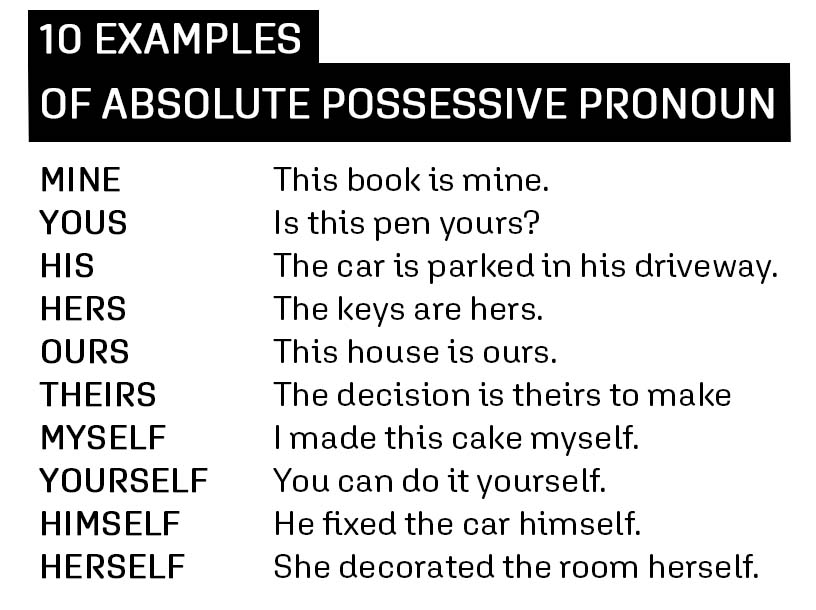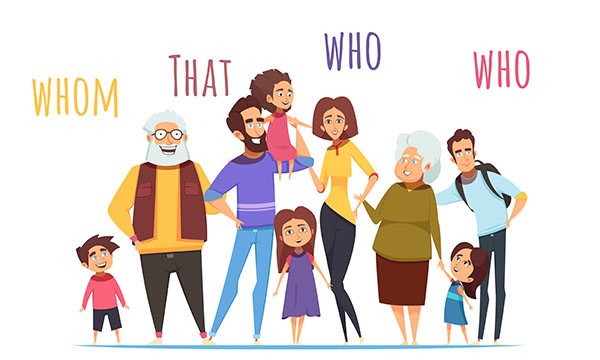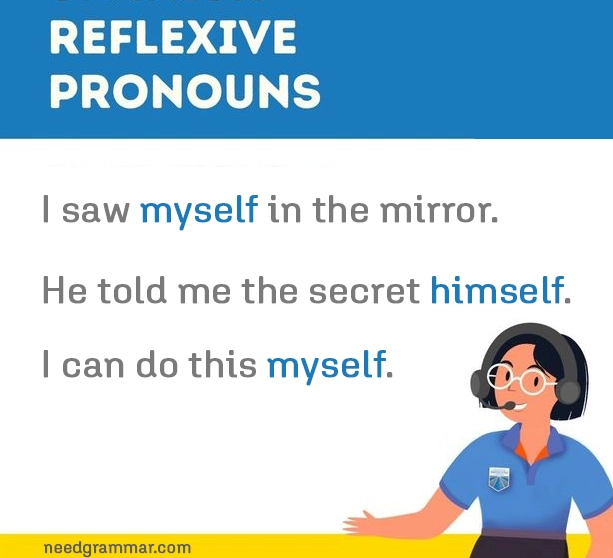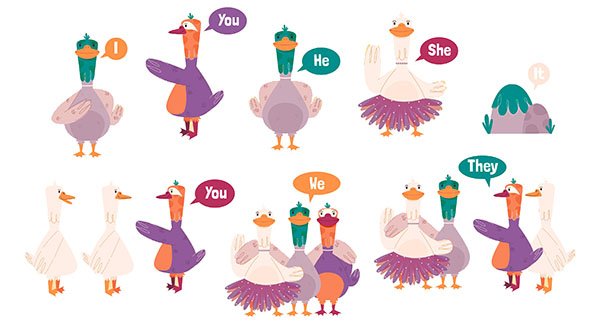
Pronouns |
Definition Absolute possessive pronoun is often referred to as possessive pronoun, it is basically the terms “mine,” “yours,” “his,” “hers,” “ours,” and “theirs.”, so basically it is a word that...

Pronouns |
What are Relative Pronouns? Relative pronouns connect a phrase to a noun or pronoun, generally in order to provide more information. They are “that,” “which,” “who,” “whom,” and “whose.” Types of...

Pronouns |
What are Possessive Pronouns? Possessive pronouns indicate ownership (possession) of something, and like other pronouns, function simply the replacement team for nouns or noun phrases that run the risk of sounding repetitive. The possessive pronouns in the English...

Pronouns |
What are Reflexive Pronouns? Reflexive pronouns emphasize the subject or object of a sentence by referring to the same person or thing. They always end in -self or -selves. Essentially, reflexive pronouns show when the object of a sentence is simultaneously also the...
Pronouns |
Object pronouns are the recipients of action in a sentence. A personal pronoun in the objective case indicates that it is acting as the object of the verb. The object pronouns are “me,” “you,” “him,” “her,”...

Pronouns |
What are Personal Pronouns? Personal pronouns are used to replace a specific person’s name. A personal pronoun in the subjective case indicates that it is acting as the subject of the verb. They are referred to as subjective pronouns when they act as the subject of a...






